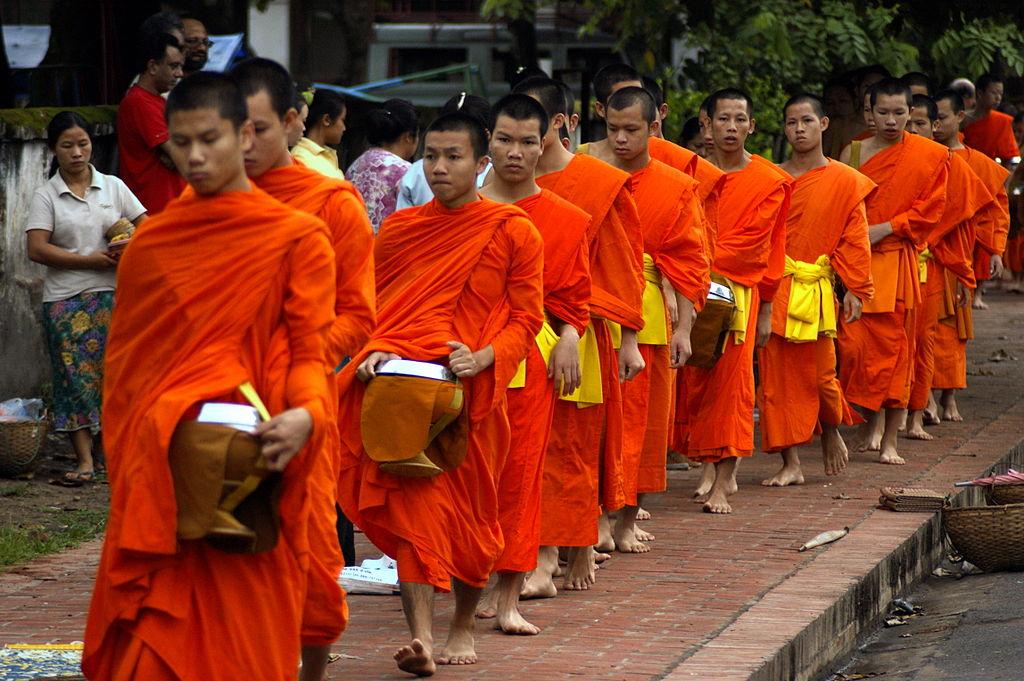
Editor’s note: This feature was first published in the now-retired Bodhi Journal, Issue 7, March 2008.
Introduction
The word karma, etymologically meaning “action”, is a term common to many of the ancient Indic religions. While this term has its roots in the Vedas of Brahmanism with its specific meaning, the concept of karma is also central to the soteriological system of religions like Buddhism where, however, the word karma has come to acquire a different meaning. To understand the meaning of karma in Buddhism, one must first understand the meaning of this word in Brahmanism during the period of the Buddha in India.
Early Brahmanism[1]
In early Brahmanism, the term karma simply had the meaning of “ritual action”. In this period of Brahmanism(pre-Buddhist and pre-Upani?adic), ritual sacrifices to please the gods for worldly gains were very important to the faithful followers. Karma at this time was neither ethical nor related to rebirth. As time went by, with the appearance of Upani???adic literature[2] , Indic religious thinkers began to ethicize the value of karma and linked it to the concept of rebirth. Historian A.L. Basham ( Obeyesekere, 2006, p 2) points out that karma is conspicuous by its absence in the Vedas and that only brief references are found in the early Upanishads. The first shift in the Vedic idea of karma as “ritual action” to that of ethical action in relation to rebirth appeared in theB?had?ra?yaka Upani?ad (3.212-13) which reads “A man turns into something good by good action and into something bad by bad action.” This obviously links karma to its ethical consequences and good karma includes virtues like kindness and truthfulness. The idea that bad karma(action) could be neutralized by other ritual acts like washing is also introduced. It has been pointed out that the ethicisation of karma was a result of the influence of non-Vedic religious traditions, which might be pre-Buddhist, in ancient India (Obeyesekere, 2006, p 85). It must be noted that within the Upani?adic theory of karma, there exists a self (?tman) which is the “doer”(kart?) as well as the enjoyer(bhokt?) of the consequences ( Kalupahana,1976,p 46). This is quite different from the Buddhist concept of karma as we shall see below.
Kamma in Buddhism
It can be said that the Buddha’s doctrine of karma is fundamental to the whole structure of his thoughts[3] . Buddha himself has defined karma in the P?li Canon, A?guttara Nik?ya(III, 415)[4] , in this way: “Monks, it is intention that I call kamma. By intending one performs karma through body, word or thought”. As such, the Buddha gives kamma a strong psychological element— the thought behind any act being more important than the act itself. In other words, it is the thought that counts. Not only physical actions, but also what goes through one’s mind even without any physical action, will have kammic consequences. This is in stark contrast to the early Brahmanical concept of karma as “ritual action”[5] .
There are other characteristics of the Buddhist kammic theory which distinguish it from other religious traditions at the time of the Buddha:
1. In early Buddhism, kamma is the natural law that governs the universe. It is more like a concept without physical form. It has been described as an energy force, an existing universal law which has no religious label, ( Dhammananda, 1993,p 95)
2. There is no ‘giver’ ( ie. a higher God) of the kammic theory. It has been, is and will be there in our universe all the time, the Buddha just discovered it and propagated it.
3. Not everything is due to kamma, there are other forces in the universe which can result, for example, in the inequality of mankind ( Narada, 1995,p106).
4. The final end result of one’s karma depends on the circumstances. Thus, pouring a glass of water into the GangesRiver will have less effect than putting the same glass into a bucket of water.
5. Life is a constant changing flux. One accumulates fresh kamma with every changing moment and as such, previous karmas are constantly being affected and modified[6] .
6. Following the central theory of dependent origination in Buddhism and the observation that everything in this universe is impermanent and changing all the time, so it follows— in contrast to Brahmanistic belief—that there can be no permanent individual “self”(?tman) to “enjoy” the consequences of one’s karma in “the next life”. However, one’s action in this life may still influence one, and others’, when one “re-becomes” another totally different and independent individual in the next life.
It should also be noted that while early Buddhism viewed kamma as an individual responsibility, subsequent development of Buddhism saw the appearance of the concept of transference of kamma— in particular of good kamma, merit—– even to the wicked. With the reification of kamma into a transferable commodity, some scholars think that the original doctrine of kamma has been stood on its head ( Gombrich, 1996, p 57).
Conclusion
While the concept of karma may have originated in ancient Indic beliefs, Buddhism has evolved to reach rather different conclusions. However, it is interesting to note that, with the subsequent development of Buddhism, it is not uncommon for the average people who claim to be Buddhists to mistakenly harbour a view of karma/rebirth in a manner which is closer to Brahmanism than Buddhism.
References
Dhammanada, K S (1993), in What Buddhists Believe, pubished by the Corporate Body of the Buddha Educational Foundation, Taiwan.
Gombrich, R F (2002) in How Buddhism began—The Conditioned Genesis of the Early Teachings, Munshiram Manoharlal Publishers Pvt.Ltd, India, 2nd edition 2002)
Gombrich R F (2006) in Theravada Buddhism— a Social History from ancient Benares to Modern Colombo, 2nd Edition, 2006, published by Routledge, London and New York
Kalupahana, D J (1976), in Buddhist Philosophy— a Historical Analysis, University of Hawaii Press, Honolulu.
Lamotte, L (1935) as quoted by Gombrich, R F (2002) in How Buddhism began—The Conditioned Genesis of the Early Teachings, Munshiram Manoharlal Publishers Pvt.Ltd, India, 2nd edition (2002) page 49.
Obeyesekere, G ( 2006) in Karma and Rebirth— a Cross Cultural Study, published by Motilal Banarsidass Publishers Private Ltd, Delhi.
William P and Tribe A ( 2000) in Buddhist Thought, published by Routledge, London and New York.
Endnotes:
1. . The term “Brahmanism” is often used as synonymous with Hinduism, although many Hindus find this term inappropriate in that it does not reflect the complete nature and ideology of Hinduism. However, the early Buddhist P?li scriptures contain a lot of debate with and references to various Brahmins ( the high priests at the time). “Brahmanism” seems to be a better term to describe the prevailing, dominant religion at the time of the Buddha and this term is used here without any derogatory meaning.
2. Hinduism’s sacred literature is known as Vedic literature. It is internally stratified into three strata: the fourSamhita texts, the Brahmans; and the Upani?ads. Upani?ads are also known as the Vedanta, “ the conclusions of the Veda”. Historians generally believe that the texts of Upani?ads began to appear in the late Vedic period, i.e. circa 1000 to circa 500 BCE which would overlap with time of the Buddha in India..
3. As Lamotte( 1935) puts it: “the doctrine of the act, karma, is the keystone of the entire Buddhist edifice; the act is the ultimate explanation of existences and of the world; the Buddhist philosophies as a function of karma”
4. All references to Pali texts are to the editions of the Pali Text Society, unless otherwise stated
5. As Gombrich ( 1996,p51) puts it “ the Buddha’s re-definition of ‘action’as ‘intention’, an audacious use of language, turned the Brahmin ideology upside down and ethicized the universe. I do not see how one could exaggerate the importance of (this)…… which I regard as a turning point in the history of civilization.
6. Thus, the Buddhist theory of karma is not a deterministic or pessimistic one. One can certainly cultivate “positive” karmic forces in one’s existence through moral discipline and purification of the mind.






